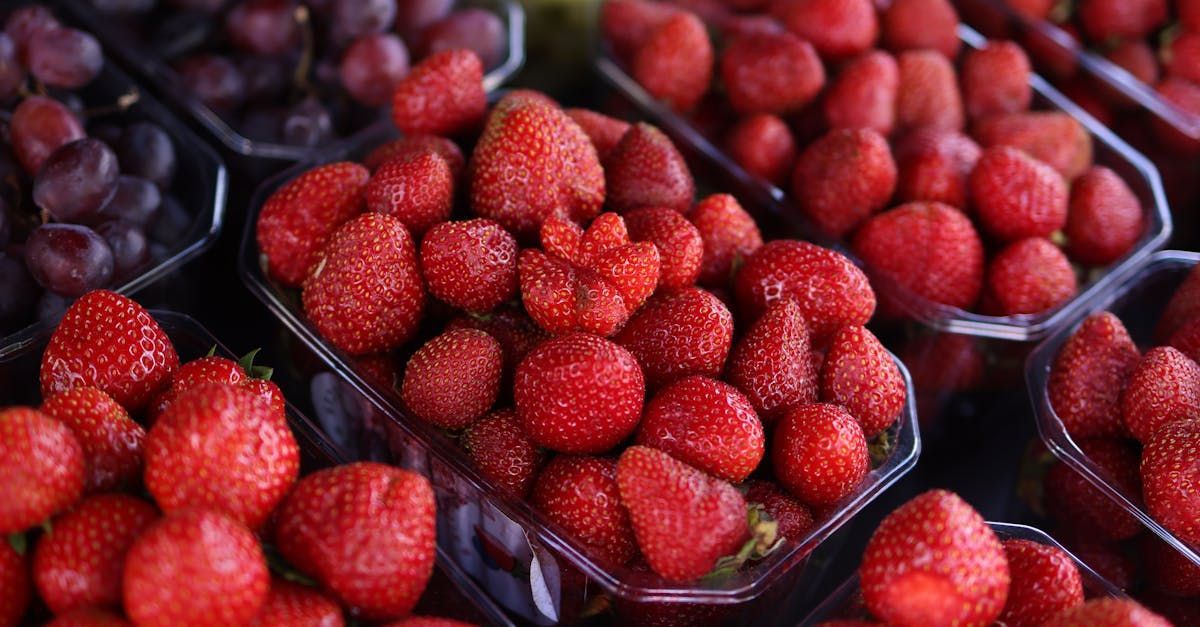The Role of Diet in Managing Anxiety
Foods That Help and Harm

Anxiety is a widespread issue that affects millions of people, often manifesting in symptoms like restlessness, excessive worrying, irritability and even physical symptoms like a racing heart or shortness of breath. While there are many strategies for managing anxiety, such as therapy, exercise and mindfulness practices, one often overlooked but powerful tool is diet. The foods you consume can either contribute to anxiety or help alleviate it. Understanding the role of diet in managing anxiety can be a game-changer for anyone looking to improve their mental well-being.
The Gut-Brain Connection: How Diet Impacts Anxiety
The relationship between diet and anxiety begins with the gut-brain axis—a complex communication network linking the gut and the brain. The gut is often referred to as the "second brain" because it contains millions of neurons and produces many of the same neurotransmitters, such as serotonin and dopamine, that influence mood and emotional well-being. Approximately 90% of serotonin, the "feel-good" neurotransmitter, is produced in the gut.
This connection means that what you eat can directly influence your mental health. A balanced diet can promote a healthy gut microbiome, which in turn supports the production of neurotransmitters that help regulate mood. Conversely, a poor diet can disrupt gut health, leading to inflammation and imbalances in these crucial brain chemicals.
Foods That Help Manage Anxiety
Certain foods have been shown to support mental health and alleviate anxiety. Incorporating these into your diet can help create a foundation for better mental well-being.
- Omega-3 Fatty Acids
- Omega-3 fatty acids, found in fatty fish like salmon, mackerel and sardines, as well as in flaxseeds and walnuts, are known for their anti-inflammatory properties. These healthy fats are essential for brain health and have been shown to reduce symptoms of anxiety. Omega-3s support the production of serotonin and dopamine, which help regulate mood and promote a sense of calm.
- Probiotics and Fermented Foods
- Fermented foods like yogurt, kefir, sauerkraut and kimchi are rich in probiotics, which are beneficial bacteria that support a healthy gut microbiome. A healthy gut is essential for optimal mental health because it influences the production of neurotransmitters that regulate mood. Studies have shown that consuming probiotics can help reduce symptoms of anxiety and depression, promoting a balanced gut microbiome.
- Complex Carbohydrates
- Complex carbohydrates, such as whole grains, legumes and vegetables, provide a steady source of energy and help stabilize blood sugar levels. This is important because fluctuations in blood sugar can lead to irritability and anxiety. Additionally, complex carbs increase the production of serotonin, promoting a sense of well-being.
- Magnesium-Rich Foods
- Magnesium is a mineral that plays an important role in regulating the nervous system. Low levels of magnesium have been linked to increased anxiety and stress. Foods rich in magnesium, such as leafy greens (spinach, kale), nuts (almonds, cashews), seeds (pumpkin seeds, chia seeds) and whole grains, can help calm the nervous system and reduce anxiety.
- Antioxidant-Rich Foods
- Antioxidants help protect the body from oxidative stress, which can contribute to anxiety and depression. Foods rich in antioxidants, such as berries, citrus fruits, dark chocolate and green tea, can help reduce inflammation in the brain and support mental clarity.
- Herbal Teas
- Certain herbal teas, like chamomile and green tea, have calming properties that can help reduce anxiety. Chamomile contains compounds that bind to receptors in the brain, promoting relaxation. Green tea is rich in L-theanine, an amino acid that has been shown to reduce stress and promote relaxation without causing drowsiness.
Foods That Can Worsen Anxiety
Just as certain foods can help manage anxiety, others can exacerbate it. Avoiding or limiting these foods can make a significant difference in your overall mental health.
- Caffeine
- Caffeine is a stimulant found in coffee, tea, chocolate and many energy drinks. While it can provide a temporary boost in energy, it can also increase anxiety by stimulating the "fight or flight" response, raising heart rate, and making you feel jittery. For those prone to anxiety, reducing or eliminating caffeine intake can help keep symptoms in check.
- Sugar and Refined Carbohydrates
- Sugar and refined carbs, such as white bread, pastries and sugary snacks, can cause rapid spikes and crashes in blood sugar levels, leading to mood swings and increased anxiety. These foods also contribute to inflammation, which can negatively affect brain function and mood. Opting for whole, unprocessed foods can help maintain stable blood sugar levels and reduce anxiety.
- Alcohol
- While alcohol is often used as a coping mechanism for stress and anxiety, it can actually worsen symptoms in the long run. Alcohol disrupts sleep patterns, depletes essential nutrients and can lead to dehydration, all of which can increase anxiety. Additionally, alcohol can interfere with the balance of neurotransmitters in the brain, leading to heightened feelings of anxiety and depression.
- Processed and Fried Foods
- Processed and fried foods, often high in unhealthy trans fats, can contribute to inflammation in the body and brain. This inflammation can interfere with brain function and exacerbate symptoms of anxiety. These foods are also typically low in nutrients, providing little to no support for overall mental health.
- High-Sodium Foods
- A diet high in sodium, found in processed foods, canned soups and fast food, can increase blood pressure and create feelings of stress and anxiety. High sodium intake can also disrupt fluid balance in the body, leading to dehydration, which can exacerbate anxiety symptoms.
Creating a Balanced Diet for Anxiety Management
Managing anxiety through diet involves more than just avoiding certain foods; it’s about creating a balanced, nutrient-rich eating plan that supports overall well-being. Here are some tips for creating a diet that helps manage anxiety:
- Focus on Whole Foods: Prioritize whole, unprocessed foods that are rich in vitamins, minerals, and antioxidants. These foods provide the nutrients your brain needs to function optimally.
- Stay Hydrated: Dehydration can worsen anxiety symptoms, so make sure you drink enough water throughout the day.
- Limit Stimulants: Reduce or eliminate caffeine and sugar, which can trigger anxiety symptoms.
- Eat Regularly: Don’t skip meals, as this can lead to drops in blood sugar that may increase anxiety.
- Include Healthy Fats: Incorporate sources of omega-3 fatty acids and other healthy fats into your diet to support brain health.
- Consider Supplements: If you find it challenging to get certain nutrients from your diet alone, consider speaking with a healthcare professional about supplements.
While diet alone may not completely eliminate anxiety, it can play a significant role in managing symptoms and improving overall mental health. By making mindful food choices, you can support your body’s ability to cope with stress and anxiety, leading to a more balanced and peaceful state of mind. Remember, small changes in your diet can make a big difference in how you feel.
Let's connect! I'm here to help.
Send me a message and I'll be in touch.
Agency Contact Form
We will get back to you as soon as possible
Please try again later


